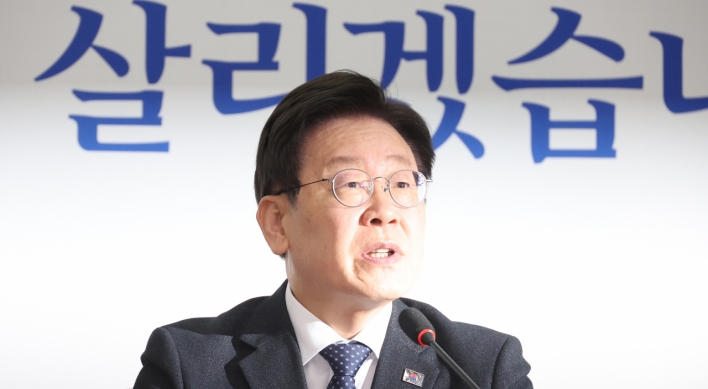When it was reported that the local government of a remote Indonesian city decided to use Hangeul, the Korean alphabet, as its official writing system in 2009, many wondered how the decision would be practically implemented, while feeling pride in the overseas recognition of the excellence of the Korean script. An embarrassing news report around this year’s Oct. 9 Hangeul Day has it that the program is apparently stalled due to the Indonesian authorities’ negative opinion of the plan and a lack of follow-up by Korean promoters.
The Hunminjeongeum Society here in Korea, established with a donation by a Hangeul enthusiast, had signed a memorandum with Bau Bau city on Buton Island off the southeast coast of Sulawesi in July 2008 for the supply of Hangeul textbooks and the training of teachers for the Cia-Cia tribe who had no writing system for their native language. Late in 2009, Bau Bau and Seoul City officials signed a letter of intent on cultural cooperation, including the establishment of a Korean cultural center in the Indonesian town.
These projects have not moved ahead, except that some 50 Cia-Cia children are being taught Hangeul writing with textbooks sent by the Hunminjeongeum Society. The society blames Seoul City Hall for unilaterally scrapping the cultural center plan while city officials say the society members promised too many things to the tribe. The Indonesian Embassy here is of the opinion that adopting Hangeul as the official writing system in Bau Bau is against the law that all Indonesian tribal languages should be recorded in Roman letters to maintain national unity.
Looking back, we find it inappropriate that a private group here contacted the local authorities of a remote Indonesian community about their official writing system instead of just promoting bilateral exchanges with Hangeul or whatever items of cultural interest. Any official writing system has the purpose of recording and preserving the spoken language of a specific people on one hand and keeping the national identity of the people in global society, making it possible for outsiders to read the language and eventually understand it, on the other. Can Hangeul better serve these purposes than the Roman alphabet?
Bau Bau officials must have had other purposes in engaging with the Korean group and Seoul City. As they backed off, the “exchange programs” came to an end. Hangeul is beautiful in design and easy to learn and use, so we are proud to have it. Let’s just stop there.
The Hunminjeongeum Society here in Korea, established with a donation by a Hangeul enthusiast, had signed a memorandum with Bau Bau city on Buton Island off the southeast coast of Sulawesi in July 2008 for the supply of Hangeul textbooks and the training of teachers for the Cia-Cia tribe who had no writing system for their native language. Late in 2009, Bau Bau and Seoul City officials signed a letter of intent on cultural cooperation, including the establishment of a Korean cultural center in the Indonesian town.
These projects have not moved ahead, except that some 50 Cia-Cia children are being taught Hangeul writing with textbooks sent by the Hunminjeongeum Society. The society blames Seoul City Hall for unilaterally scrapping the cultural center plan while city officials say the society members promised too many things to the tribe. The Indonesian Embassy here is of the opinion that adopting Hangeul as the official writing system in Bau Bau is against the law that all Indonesian tribal languages should be recorded in Roman letters to maintain national unity.
Looking back, we find it inappropriate that a private group here contacted the local authorities of a remote Indonesian community about their official writing system instead of just promoting bilateral exchanges with Hangeul or whatever items of cultural interest. Any official writing system has the purpose of recording and preserving the spoken language of a specific people on one hand and keeping the national identity of the people in global society, making it possible for outsiders to read the language and eventually understand it, on the other. Can Hangeul better serve these purposes than the Roman alphabet?
Bau Bau officials must have had other purposes in engaging with the Korean group and Seoul City. As they backed off, the “exchange programs” came to an end. Hangeul is beautiful in design and easy to learn and use, so we are proud to have it. Let’s just stop there.








![[Hello India] Hyundai Motor vows to boost 'clean mobility' in India](http://res.heraldm.com/phpwas/restmb_idxmake.php?idx=644&simg=/content/image/2024/04/25/20240425050672_0.jpg&u=)








